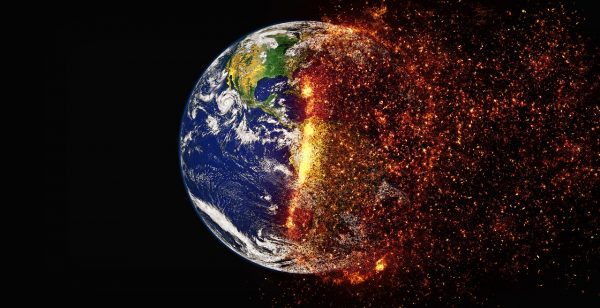Here are some of the latest climate change stories to keep you up-to-date:
Greenland Loses 11 Billion Tons of Ice – In One Day
After months of record temperatures, scientists say Greenland’s ice sheet experienced its biggest melt of the summer on Thursday, losing 11 billion tons of surface ice to the ocean — equivalent to 4.4 million Olympic swimming pools. Greenland’s ice sheet usually melts during the summer, but the melt season typically begins around the end of May; this year it began at the start. It has been melting “persistently” over the past four months, which have recorded all time temperature highs, according to Ruth Mottram, a climate scientist with Danish Meteorological Institute.
Full Story at CNN
July Was the Hottest Month Ever Recorded on Earth
That’s the word from the National Oceanic and Atmospheric Administration (NOAA), which tallied up global land and sea temperature recordings from 2019’s seventh month and compared them to its 140-year data set, stretching back to 1880. The global average temperature for the month was 1.71 degrees Fahrenheit (0.95 degrees Celsius) above the 20th century average of 60.4 F (15.8 C). It was 0.05 F (0.03 C) warmer than the previous record, set in July 2016. This new global heat record shouldn’t be too surprising to anyone who read the news last month. A punishing heat wave swept across Europe and then settled over Greenland, where it triggered hundreds of billions of tons of ice melt. Sea ice in both the Arctic and Antarctic regions reached 41-year lows as well, according to NOAA.
Full Story From Live Science
US Fracking May Be Amping Up Climate Change
As greenhouse gases go, methane gets less attention than carbon dioxide, but it is a key contributor to climate change. Methane doesn’t stay in the atmosphere as long as CO2 and is reabsorbed into terrestrial cycles via chemical reactions within 12 years or so. But while it’s up there, it’s much more potent, trapping heat at roughly 84 times the rate of CO2. Scientists estimate that around 25 percent of current global warming traces to methane. When it comes to reducing CO2 emissions, the chain between cause and effect is frustratingly long and diffuse. Reduced emissions today won’t show up as reduced climate impacts for decades. But with methane, the chain of causation is much shorter and simpler. Reduced emissions have an almost immediate climate impact.
Full Story From Vox



